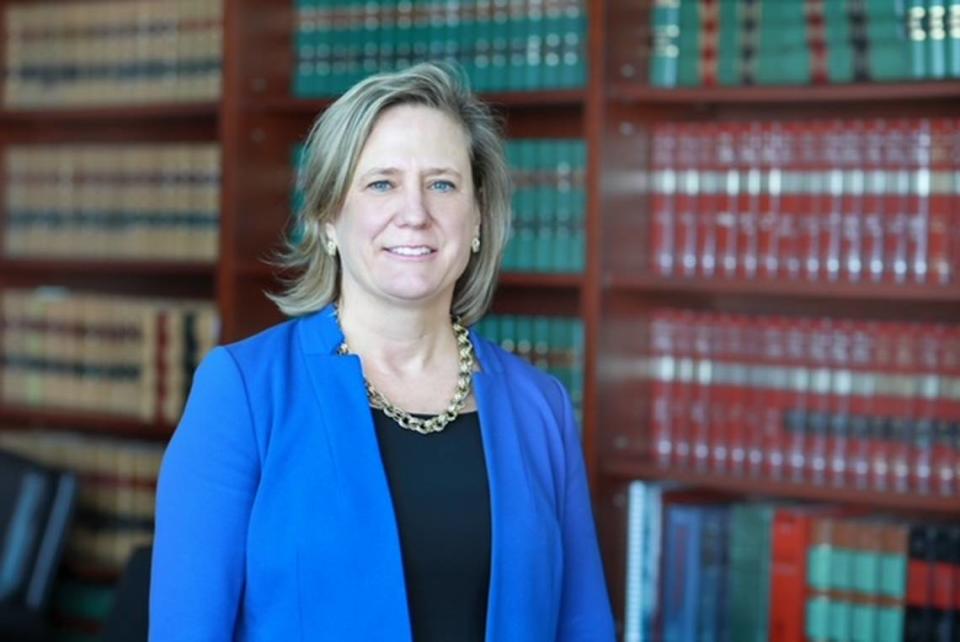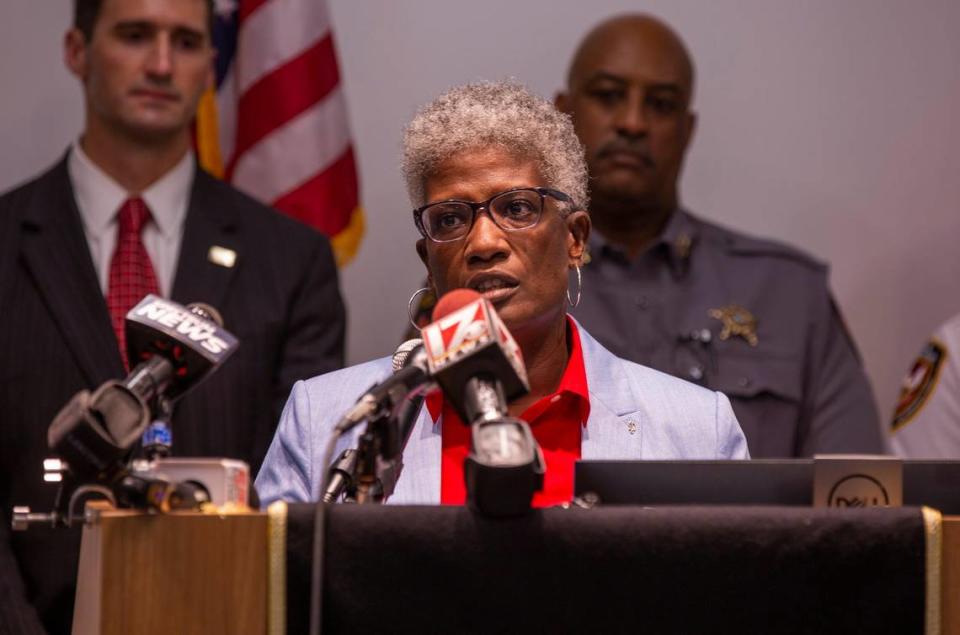As teen murder cases advance, will North Carolina DAs push for life sentences?
A 15-year-old accused of killing five people in an October shooting rampage within the Hedingham neighborhood in Raleigh.
A 17-year-old charged with shooting and killing a 14-year-old and 18-year-old as they run away from him in Orange County.
Two 16-year-olds charged with killing a 17-year-old moments after he stepped off a school bus in Charlotte.
In each of these cases, teens could be prosecuted for first-degree murder. If found guilty, they could face life in prison at a time when research and the courts say such punishment for young defendants can be inappropriate and inhumane.
North Carolina prosecutors are well aware of the science and rulings. But when asked about sending minors to prison for life, they say they want to keep their options open.
Wake, Orange, Durham and Mecklenburg county district attorneys said they would only send kids to prison for life in very limited circumstances.
Life sentences for juveniles should be reserved to a very limited number of heinous crimes, such as the Hedingham killings last fall, Wake District Attorney Lorrin Freeman said.
A 15-year-old has been identified as the shooter. He is not yet charged with murder in adult court, but Freeman has said she is in the process of transferring the case from the juvenile system.
“That is an example of a case where we would be seeking a life sentence,” she said of the mass shooting, unless mitigating evidence is uncovered.

A recent increase in murder charges against minor-aged North Carolinians may require Freeman and other district attorneys across the state to make such difficult decisions more often.
There were 220 juvenile complaints, the equivalent to adult charges, of first-degree murder sought against minor-aged defendants during the fiscal year 2021-22. That’s a 90% increase from 116 complaints the previous year, according to the North Carolina Division of Juvenile Justice and Delinquency Prevention.
U.S. Supreme Court rulings
When assessing the fairness of criminal sentences, U.S. Supreme Court rulings over the past 18 years have recognized that the developing brains of minor-aged defendants make them more vulnerable to recklessness and outside influences than adults.
Youth can still be sent to prison for life for murder, but such punishments should be uncommon and judges must consider their age, the U.S. Supreme Court has ruled.
Activists say sending kids to prison for the rest of their life is always cruel and unusual punishment, however. Human Rights Watch says the United States is the only country that does it.
“I don’t think that any kid should get life without parole,” said Ben Finholt, director of the Just Sentencing Project at Duke law school. The project studies extreme sentences, including juveniles sentenced to life in North Carolina, and racial disparities.
National civil rights organizations, including the American Civil Liberties Union, oppose life sentences for youth. So does a task force established by Gov. Roy Cooper.
Opponents point to research that has concluded that it’s impossible to know how the brains of teenagers or younger children charged with crimes will develop over time.
“No one can tell the future, and because we can’t tell the future it doesn’t make any sense that someone has to spend the rest of their life in prison,” Finholt said.

Other arguments against life sentences focus on costs and disparities with the amount of time served.
A 50-year sentence for a 16-year-old was estimated in 2020 to cost about $2.25 million, according to Finholt and co-authors’ report on North Carolina minors sentenced to life.
It also costs thousands of dollars for each offender fighting for an earlier release following the Supreme Court decisions, the report states.
Supreme Court decisions have noted that juveniles sentenced to life in prison end up serving longer than adults.
The number of youths sentenced to life in North Carolina has dropped dramatically since the Supreme Court banned automatic life sentences for juveniles in 2012. Six have been sentenced to life since then, compared to about 50 from 2002 to 2012.
Youth sentencing rules differ
If an adult is convicted of first-degree murder in North Carolina, whether he or she fired a gun or participated in a robbery that led to a killing, the sentence is automatically life in prison.
That’s not the case for juveniles.
U.S. Supreme Court rulings between 2005 and 2016 barred courts from sentencing minors to death or to automatic life sentences, calling those practices cruel and unusual punishments for vulnerable youth.
District attorneys play a huge role in the process that can end with minors being sentenced to prison for life.
They decide what charges should be prosecuted. They also decide whether cases will be heard in juvenile court, which aims to be rehabilitation-oriented, or adult court, which is usually punitive.

The decision to pursue criminal charges against a young defendant in adult court is never taken lightly, said Mecklenburg County District Attorney Spencer Merriweather.
Current science and research about children’s brains is why Merriweather’s office reviews each of the cases carefully, he said. In Mecklenburg, about a dozen homicide prosecutors scrutinize cases before assessing whether to move young defendants to adult court, he said.
Ultimately that decision lands on Merriweather’s desk. Merriweather said he couldn’t share specific details of past cases because juvenile cases require confidentiality.
But in cases where youth defendants were not the shooters, or were egged on by adults, they are less likely to get moved, he said.
Sometimes cases involve a defendant who has an extensive list of issues in juvenile court, such as shooting multiple people before being charged with a murder.
“I have got some responsibilities to the community to consider every option on the table,” Merriweather said.
Juries, judges decide too
If the district attorney takes a young person’s murder charges to trial, a jury will decide whether a youth defendant is guilty.
If a defendant is found guilty of first-degree murder, the district attorney could then argue that he or she fits the Supreme Court standard of being “irreparably corrupt” or “permanently incorrigible.”
But judges make the final sentencing decisions.
Since 1994, 95 young defendants have been sentenced to life without parole sentences in North Carolina. The youngest was 13 at the time the crime was committed. Four were 14 years old.
In recent years, that record has drawn criticism and scrutiny. In 2020, Cooper established the North Carolina Task Force for Racial Equity in Criminal Justice. In its initial report, members expressed concerns about previous juvenile life sentences being concentrated in a small number of counties and “plagued by racial disparities.”
The task force’s many recommendations for reform included guidance that young defendants should be eligible for parole after 25 years for first-degree murder convictions.
Prosecutors differ on sentences
Durham County DA Satana Deberry and Orange-Chatham counties DA Jeff Nieman have taken a hard line on the death penalty, the most severe punishment for adults. They have both pledged not to use it.
However, when contacted on sentencing of young defendants, they did not rule out advocating for sentencing young defendants to life without parole.
Deberry stressed that she is unlikely to pursue a life in prison sentence for a youth. “I would make every effort not to,” she said, citing the cumulative research and court rulings.

Nieman said he plans to abide by the law as it is written, which includes the life without parole option for extreme cases, he said.
An example when it was appropriate, he said, was the Laurence Lovette case. “It was especially heinous and cruel and premeditated,” the district attorney said.
Lovette was 17 when he and Demario Atwater robbed and shot and killed UNC student body president Eve Carson to death in 2008.
Lovette was convicted and sentenced to life in prison in 2012, with North Carolina courts reviewing and upholding the life sentence after the U.S. Supreme Court banned automatic life sentences.
Nieman declined to comment on whether he would seek juvenile life without parole for a more recent killing in Orange County.
Issiah Ross is charged with killing Lyric Woods, 14, and Devin Clark, 18, in September off a grassy trail on Buckhorn Road, near Efland. Ross was 17 on the early morning they were killed.
They were shot multiple times in their backs while running for their lives, she said.
Virginia Bridges covers criminal justice in the Triangle and across North Carolina for The News & Observer. Her work is produced with financial support from the nonprofit The Just Trust. The N&O maintains full editorial control of its journalism.

